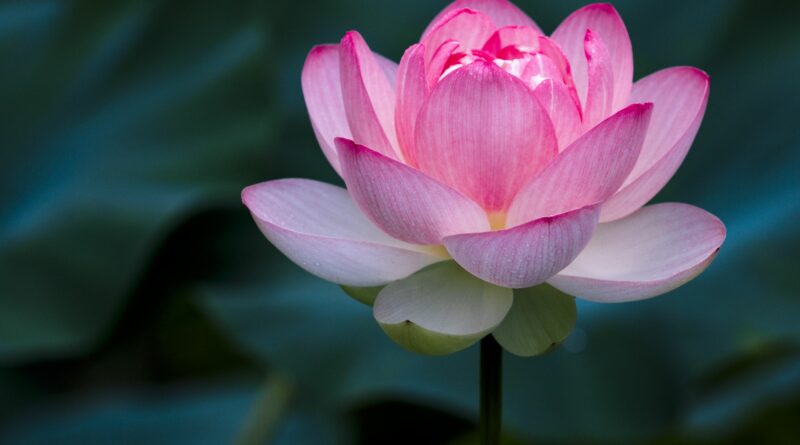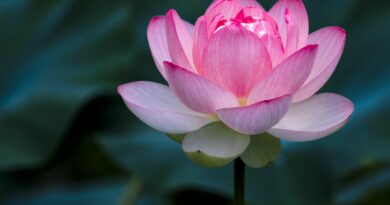101-111
MAIN CONTENT
101-111
101. A comparison
“The desire to know and see so as to put an end to one’s doubts is something you find in all advanced people. Every science, every branch of learning, has been established so that people will question and want to know. That’s when they’ll make the effort to study and practice to reach the goal of that branch of learning.
“But in the area of the Buddha’s teachings, you have to study and practice in a balanced way. And your effort has to be intense so that you can enter into the highest thing in the Dhamma on your own. That’s when you’ll end your doubts totally on your own.
“It’s like a person from the countryside who’s never seen Bangkok. When people tell him that, in addition to being developed in other ways, Bangkok has a ‘Jewel Wall’ [the name of the fortress wall around the Grand Palace] and an enormous ‘Gold Mountain’ [the name of the cetiya at Wat Sraket], he makes up his mind to go to Bangkok with the expectation that he’ll be able to get some jewels from the wall and some gold from the mountain. But when he finally makes it to Bangkok and someone shows him, ‘That’s the Jewel Wall; that’s the Gold Mountain,’ that puts an immediate end to all his questions and expectations.
“The paths, fruitions, and nibbāna are like that.”
102. The safest way to dwell
I remember that in 1976 two meditation teachers from the northern part of the Northeast came to pay their respects to Luang Pu. The way they discussed the practice with him was very delightful and inspiring. They described the virtues and attainments of the different ajaans with whom they had lived and practiced for a long time, saying that that luang pu had concentration as his constant mental dwelling; this ajaan dwelled in the Brahma attitudes, which is why so many people respected him; that luang pu dwelled in the limitless Brahma attitudes, which is why there was no limit to the number of students he had, and why he was always safe from dangers.
Luang Pu said,
“Whatever level a monk has reached, as far as I’m concerned he’s welcome to dwell there. As for me, I dwell with knowing.”
103. Continued
When those two monks heard Luang Pu say that he dwelled with knowing, they were silent for a moment and then asked him to explain what dwelling with knowing was like.
Luang Pu explained,
“Knowing is the normalcy of mind that’s empty, bright, pure, that has stopped fabricating, stopped searching, stopped all mental motions—having nothing, not attached to anything at all.”
104. The end of stress
Luang Pu was pure in his speech because he liked to talk about the genuine truth. He’d speak only of the highest aims of the Buddha’s teachings, he’d refer only to the Buddha’s words that led solely to the end of suffering and stress. You could tell this from the Buddha’s teaching he quoted most often.
The Buddha said,
“Monks, there that dimension where there is neither earth, nor water, nor fire, nor wind; neither the dimension of the infinitude of space, nor dimension of the infinitude of consciousness, nor dimension of nothingness, nor dimension of neither perception nor non-perception; neither this world, nor the next world, nor sun, nor moon. And there, I say, is neither coming, nor going, nor staying; neither passing away nor arising: unestablished, unevolving, without support. This, just this, is the end of stress.”
105. His last illness
When Luang Pu returned from the hospital in early 1983, it didn’t mean that he had fully recovered from his illness, simply that he had to use an extreme level of endurance to survive for eight more months, to the special merit-making celebration that had been planned for his 96th birthday. As the day of the ceremony approached, his symptoms started getting erratic: He’d be very tired, uncomfortable, and feverish from time to time. I asked him if we should take him back to Chulalongkorn Hospital, but he said, “There’s no need to.” And then he added, “I forbid you to take me, for even if I went, I wouldn’t recover.”
I replied, “Last time your illness was heavier than this and you still recovered. This time it’s not heavy at all. You’re sure to recover.”
Luang Pu said,
“That was last time. This isn’t last time.”
106. Approaching death
On October 29, 1983, Luang Pu’s condition was no better than stable after 1:00 p.m., but his complexion was abnormally bright. His followers—lay people, town monks, and forest monks—came in large numbers for the celebration.
At 3:00 p.m., a large contingent of forest monks came to pay respect to Luang Pu, who sat up and discussed the Dhamma with them. Speaking in a clear voice, he advised them on the entire path of practice as if he were resolving all their doubts and questions, summarizing all the meditation instructions he had ever taught.
Later that night, near 10:00 p.m., Luang Pu had us take him out of his hut in a wheelchair. He looked gently around the whole area of the monastery, with no one realizing that that would be his last look at things outside.
107. One last recollection of the Dhamma
After 10:00 p.m., Luang Pu had us take him back into his room. He lay on his back, supported by a large pillow. He asked the eight or nine monks in the room to chant the Seven Blessing Chants for him to hear. Then he told them to chant the Sati-sambojjhaṅga Sutta three times, and Dependent Co-arising three times. Then he asked us to chant the Great Establishings of Mindfulness (Mahā Satipaṭṭhāna) Discourse, but none of us had memorized it. So he said, “Open your chanting books and chant from the book,” but there were no chanting books around. Fortunately, Ajaan Phuunsak, who had been looking after Luang Pu all along, had brought his copy of the Royal Chanting Book, so he picked it up and searched through the book to find the right page, leafing back and forth until Luang Pu said, “Hand it here.” He then opened the book to the right page without even looking at it and said, “Chant from right here.” This amazed every monk in the room, for Luang Pu had opened the book right to the Mahā Satipaṭṭhāna Discourse, on page 172. The discourse was long, and it took us more than two hours to finish it. He listened quietly throughout.
108. Final words
A few moments after we had finished chanting the Mahā Satipaṭṭhāna Discourse, Luang Pu began speaking about the Lord Buddha’s total nibbāna, from the beginning to the end. Here, I’ll ask just to quote his concluding remarks:
“The Lord Buddha didn’t attain nibbāna in any of his jhānic attainments. When he left the fourth jhāna, his mental aggregates all ceased at once, with nothing remaining. In other words, he allowed his feeling aggregate to cease in an awake state of mind, the normal human mental series, complete with mindfulness and alertness, with no other mental states coming to blind or delude the mind at all. This was the mind fully in its own state. You could call that state great emptiness, or the original cosmos, or nibbāna, whichever you like. That’s the state I’ve been practicing all along to reach.”
Those were Luang Pu’s last words.
109. A moment of wilderness in the city
Let’s go back in time for a moment to some events nearly 100 years ago. Luang Pu’s group of four wandering monks and novices had split off from Ajaan Mun’s group and were wandering through Thaa Khantho district in Kalasin province. As they went through the dense forest, they encountered all sorts of dangers and difficulties: every kind of wild animal and, in particular, malaria. Finally, one of the monks, unable to fight off the disease, died in a pitiful way right in front of his fellow monks. Worse than that, when Luang Pu split off from the group accompanied by just one small novice into another forest wilderness near Kut Kawm village, malaria came and took the life of the novice right before his eyes. Luang Pu could do nothing but look on in utter dismay, simply because he lacked the medicine to treat the disease.
Now come back to the events just after 4:00 a.m. on October 30, 1983. That same condition of wilderness returned for a moment in Luang Pu’s room, for although he was seriously ill there wasn’t a single nurse, not a single drop of saline solution anywhere around. There were simply Luang Pu’s monastic students circled around him, as if protecting his total freedom to put down his body in a death that left no traces—completely pure, quiet, and calm.
110. Even the timing was apt
The Buddha had searched for the truth for six years, and when he gained Awakening, he did so at the approach of dawn, i.e., after 4:00 a.m. Having gained Awakening, he taught for another 45 years, using the period after 4:00 a.m. each day to spread his awareness to see whom he should teach the next day. When the time came for his total nibbāna, he chose the same time of day.
A bundle of fabrications that had arisen on October 4, 1888 in Praasaat Village, Surin province, grew and developed in stages, conducting his life in a way that was admirable and right. He remained in the ochre robe to the end of his days, practicing in an exemplary fashion, truly an “unexcelled field of merit for the world.” He worked in a consummate way for his own true benefit and for the true benefit of others until October 30, 1983. That’s when Luang Pu dropped his body at 4:13 a.m.—just like that.
What was amazing was that his students—lay and ordained, city dwellers and forest dwellers—had already gathered to make merit in celebration of the beginning of Luang Pu’s 96th year, the completion of his eighth twelve-year cycle, as if in full preparation for this event.



